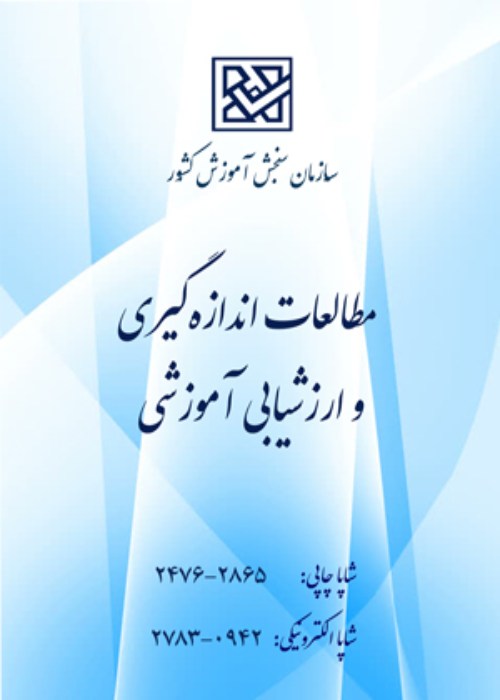The Factor Analysis of the Academic Corruption Questionnaire in Iranian Higher Education
Today, corruption has become a serious issue in the higher education system, and thus different researches have studied the issue. But what can be seen in these studies is that there is a lack of clear and acceptable definition of indicators and components of academic corruption among researchers. This issue has gone so far that even the definition of corruption depends on the social and cultural context. Thus, it seemed necessary to design a questionnaire to measure university corruption in Iran according to its context.
The purpose of this study was to determine the components of the Academic Corruption Questionnaire in the faculty members of Iranian higher education. In addition, the current research sought to assess the validity and reliability of the university corruption scale.
The method of the present study was correlation research based on factor analysis. The population of the study included faculty members of the University of Tehran (Faculties of Educational Sciences and Basic Sciences), Allameh Tabataba’i University (Faculties of Psychology and Educational Sciences and Social Sciences), Amirkabir University of Technology (Electrical Engineering and Medical Engineering), Semnan University (Faculty of Humanities and Psychology Educational) and University of Kurdistan (Faculties of Humanities and Basic Sciences). In total, the research population was 420 faculty members. By using stratified random sampling method, a total of 200 faculty members were selected as the sample based on the Cochran's formula. The method of data collection in the research was field study. Namely, the questionnaires used were distributed among the faculty members and after completing and returning the questionnaires, the necessary data were extracted from them. The measurement tool in the present study was a researcher-made academic corruption questionnaire. The questions were designed in five ranges 1 (strongly disagree) to 5 (strongly agree). The questionnaire was given to 5 professors and experts of higher education, and they confirmed the content validity of the questionnaire and the appropriateness of the questionnaire items. Then the questionnaire was tested on 30 sample people and the problems related to translation were solved. In this study, Cronbach's alpha coefficient in the initial implementation was 0.90.
Factor analysis by principal component analysis and orthogonal rotation (varimax) was conducted and the analysis showed 4 dimensions included educational, research, communication and administrative-managerial factors. A total Cronbach's alpha coefficient was 0.88. And for other factors were calculated 0.82, 0.79, 0.89 and 0.72, respectively. In addition, confirmatory factor analysis using fit indices in 4 factors has been confirmed. Finally, this scale of academic corruption can be used as a valid and reliable tool in measuring the academic corruption of the higher education community.
Findings from exploratory factor analysis showed that all items of academic corruption are loaded in four components: academic corruption, educational corruption, research corruption, communication corruption and managerial-administrative corruption. The analysis of the materials showed that this scale has appropriate psychometric properties and all its materials effectively participate in the academic corruption scale.
- حق عضویت دریافتی صرف حمایت از نشریات عضو و نگهداری، تکمیل و توسعه مگیران میشود.
- پرداخت حق اشتراک و دانلود مقالات اجازه بازنشر آن در سایر رسانههای چاپی و دیجیتال را به کاربر نمیدهد.



